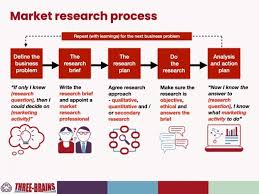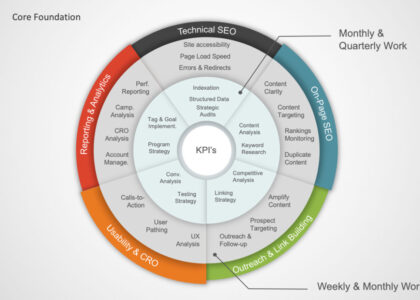The Importance of Market Data Analysis in Business Decision-Making
Market data analysis plays a crucial role in helping businesses make informed decisions that drive growth and success. By collecting, interpreting, and leveraging relevant data, companies can gain valuable insights into market trends, customer behaviour, and competitor activities. This article explores the significance of market data analysis and how it can be a game-changer for businesses.
Understanding Market Trends
Market data analysis enables businesses to identify and understand current market trends. By analysing sales figures, consumer preferences, and industry developments, companies can stay ahead of the curve and adapt their strategies accordingly. This insight allows businesses to anticipate changes in demand, adjust pricing strategies, and launch new products or services that resonate with their target audience.
Improving Customer Engagement
By analysing customer data such as purchasing patterns, feedback, and demographics, businesses can personalise their marketing efforts and enhance customer engagement. Market data analysis helps companies tailor their messaging to specific customer segments, improve product offerings based on feedback, and create targeted campaigns that drive customer loyalty and satisfaction.
Competitor Analysis
Market data analysis also provides businesses with valuable information about their competitors. By monitoring competitor pricing strategies, product launches, and marketing tactics, companies can identify opportunities for differentiation and competitive advantage. Understanding the competitive landscape allows businesses to fine-tune their own strategies and stand out in a crowded marketplace.
Optimising Business Operations
In addition to informing strategic decisions, market data analysis can help businesses optimise their internal operations. By analysing operational data such as inventory levels, supply chain efficiency, and production costs, companies can identify areas for improvement and cost savings. This insight enables businesses to streamline processes, reduce waste, and enhance overall efficiency.
Conclusion
In today’s fast-paced business environment, market data analysis is more important than ever. By harnessing the power of data analytics, businesses can gain a competitive edge by making well-informed decisions that drive growth and profitability. Whether it’s understanding market trends, improving customer engagement, analysing competitors or optimising operations – market data analysis is a key tool for success in the modern business landscape.
Essential FAQs on Market Data Analysis: Understanding Its Importance, Tools, and Challenges
- What is market data analysis?
- Why is market data analysis important for businesses?
- How can market data analysis help in understanding customer behaviour?
- What are the key components of market data analysis?
- What tools are commonly used for market data analysis?
- How does market data analysis impact business decision-making?
- What are the challenges associated with market data analysis?
- Can market data analysis predict future trends accurately?
What is market data analysis?
Market data analysis refers to the process of collecting, interpreting, and evaluating data related to market trends, consumer behaviour, and competitor activities. It involves using statistical techniques and analytical tools to extract meaningful insights from large volumes of data. Market data analysis helps businesses understand their target market better, identify opportunities for growth, and make informed decisions based on evidence rather than intuition. By analysing market data effectively, companies can gain a competitive edge, improve customer engagement, and optimise their business strategies for success in today’s dynamic marketplace.
Why is market data analysis important for businesses?
Market data analysis is essential for businesses as it provides valuable insights that drive strategic decision-making and business growth. By analysing market trends, customer behaviour, and competitor activities, companies can make informed decisions that align with market demands and opportunities. Market data analysis helps businesses understand their target audience better, tailor their products and services to meet customer needs, and stay ahead of competitors. Ultimately, leveraging market data analysis allows businesses to optimise their operations, improve efficiency, and maximise profitability in today’s competitive business landscape.
How can market data analysis help in understanding customer behaviour?
Market data analysis is instrumental in understanding customer behaviour by providing valuable insights into consumer preferences, purchasing patterns, and engagement with products or services. By analysing data such as customer demographics, browsing history, and transaction records, businesses can identify trends and patterns that reveal how customers interact with their brand. This information allows companies to tailor their marketing strategies, improve product offerings, and enhance the overall customer experience to meet the evolving needs and expectations of their target audience. Ultimately, market data analysis empowers businesses to make informed decisions that drive customer loyalty, satisfaction, and long-term success.
What are the key components of market data analysis?
Market data analysis involves several key components that are essential for extracting valuable insights and making informed business decisions. These components typically include data collection, data processing, data interpretation, and data visualisation. Data collection involves gathering relevant information from various sources such as sales reports, customer feedback, and industry reports. Once the data is collected, it needs to be processed to identify patterns, trends, and correlations. Interpretation of the processed data is crucial to derive meaningful conclusions and actionable recommendations. Finally, data visualisation techniques such as charts, graphs, and dashboards are used to present the findings in a clear and concise manner for better understanding and decision-making. Each of these components plays a vital role in the overall market data analysis process, enabling businesses to gain a competitive edge in today’s dynamic market landscape.
What tools are commonly used for market data analysis?
A variety of tools are commonly used for market data analysis, ranging from traditional spreadsheet software like Microsoft Excel to more advanced analytics platforms such as Tableau, Power BI, and Google Analytics. These tools allow businesses to organise, visualise, and interpret vast amounts of market data efficiently. Additionally, statistical software like R and Python are popular choices for conducting complex data analysis and predictive modelling. With the right tools at their disposal, businesses can extract valuable insights from market data to make informed decisions that drive growth and success.
How does market data analysis impact business decision-making?
Market data analysis has a significant impact on business decision-making by providing valuable insights that guide strategic choices and drive growth. By analysing market trends, customer behaviour, and competitor activities, businesses can make informed decisions that are aligned with market dynamics. This data-driven approach allows companies to anticipate changes, identify opportunities for innovation, and mitigate risks effectively. Ultimately, market data analysis empowers businesses to optimise their operations, enhance customer engagement, and stay ahead of the competition in today’s rapidly evolving marketplace.
What are the challenges associated with market data analysis?
Market data analysis comes with its own set of challenges that businesses must navigate to extract meaningful insights. One common challenge is the sheer volume of data available, making it difficult to sift through and identify relevant information. Ensuring data accuracy and quality is another hurdle, as inaccuracies can lead to flawed analysis and misguided decisions. Additionally, integrating data from multiple sources and formats can be complex and time-consuming. Interpretation of data can also be challenging, requiring expertise in statistical analysis and industry knowledge to derive actionable conclusions. Overcoming these challenges requires a combination of advanced technology, skilled analysts, and a strategic approach to data analysis in order to unlock the full potential of market insights.
Can market data analysis predict future trends accurately?
The question of whether market data analysis can accurately predict future trends is a common one in the realm of business and finance. While market data analysis provides valuable insights into past and present market dynamics, predicting future trends with absolute accuracy is challenging due to the inherent unpredictability of markets. Market data analysis can certainly help identify patterns, trends, and potential scenarios based on historical data and statistical models. However, factors such as unexpected events, changing consumer behaviour, economic shifts, and geopolitical developments can all influence market outcomes in ways that may not be fully captured by data analysis alone. Therefore, while market data analysis can inform decision-making and provide valuable guidance for businesses, it is important to approach future trend predictions with a degree of caution and awareness of potential uncertainties.





